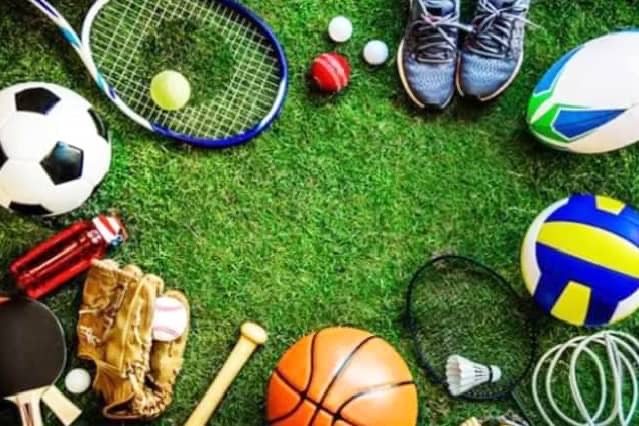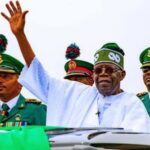Last Saturday, the curtains were drawn on the 13th African Games hosted by Ghana after almost a year of delay, with Egypt dominating the Games and challenging the rest of African nations to wake up in terms of sports development.
Host Ghana put up quite a show and are proud of hosting the Games for the very first time since 1965.
All the facilities used for the Games were excellent and most Nigerians were marveled that the University of Ghana Legon, Accra could boast of a world class facility like the 10, 000 capacity UOG Sports Stadium, they wondered which University in Nigeria could have such.
All the athletes participating in the Games were housed in the University of Ghana hostels. The feeding and transportation arrangements to other venues outside the UOG campus were done according to international standards.
Aside from the West African internet shut down midway into the Games, visiting delegations had little complaints about shortfalls that usually characterize events organization in this part of the world.
The atmosphere for competitions was conducive, but only got noisy and rancorous when there was a competition involving Nigerian and Ghanaian athletes. Locals brought the Ghana/Nigeria Jollof Rice rivalry into the Games.
But at the end of the day the Ghanians realized that in the field of general sports, they are no match for Nigerian sporting talents.
One of the highlights of the rivalry was in the men’s 4x100m relay, where the home fans screamed their lungs out in support of their team featuring popular Benjamin Azamati. The Ghanians were the defending champions from the 2019 Games in Rabat, Morocco.
They beat a star-studded Nigerian team.
And all the Ghanians were hopeful that their boys would beat Nigerian again, but they had another thing coming: The Nigerian anchor leg, Itsekiri ran the race of his life to clinch the gold for Nigerian.
“I refused to be beaten by Benjamin for the second time. In Rabat he made a meal out of me and so this time I was ready, even if I had to pull a hamstring,” said Itsekiri.
Another highlight of the athletics event was in the mixed relay, where all hope for a gold medal was lost, but a long forgotten athlete Omolara Omotosho made a strong comeback to the sport.
She was the anchor of the relay team who received her baton with a distance of about 30 metres disadvantage, but she chased down the leading Botswana athlete and overtook her midway to the finish line to finish at a time of 3.13.26 seconds, which is new national record.
But a Ghana/Nigeria Jollof rice rivalry in the Games was of little concern for the Nigerian delegation, their main preoccupation was how to catch up with Egypt that has always dominated the African Games from inception.
The Egyptians extended their medal haul from 101 gold at the 2019 Games to 103 gold, 47 silver, and 42 bronze. Nigeria was second with 47 gold, 34 silver and 40 bronze medals. South African placed third with 32 gold, 32 silver and 42 bronze.
Egypt’s dominance in the African Games, is a clarion call for Sub Saharan African countries who are laid back in their sports development approach.
In addition, three Nations participated in the 335 events staged in various venues across Accra. And Egypt hosts of the next Games in 2027 were the runaway winners and Nigerians were overrated by their domination of the Games.
“This goes to show that we are way back in our sports development,” said Solomon Ogba, vice president of the Nigeria Olympic Committee.
“We need to develop our sports and athletes and compete favorably with Egypt.
They are practically present in all the sports events and we are not. “Even in Table Tennis we used to dominate, they have taken over, South African did not come with their list of swimmers. They were focused on the Olympics and that gave the Egyptians the edge in swimming.”
Commenting on Nigeria’s performance he added: We weren’t even adequately prepared for the Games, but our athletes did remarkably well, most especially in athletics.
“A good number of the athletes are making their debut in the African Games, this is because most of the top performers have all moved to the United States to further their education and advance in their athletics careers.
“We have two good male sprinters doing sub ten that are not here.”
Nigeria of course topped the athletics medals table with the likes of Tobi Amusa and Ese Brume world elite athletes making their presence felt.
Tobi won in her event the women’s 100m hurdles and later joined the women’s 4x100m to win another gold. Brume won gold in the women’s long jump with a 6.92m season’s best.
“We have surpassed our expectations in athletics. In the last Games, we won nine gold medals and came second to Kenya on the athletics medals table, but here we got 11 gold and topped the table, that is a major plus for us,” Rita Mosindi who is the Athletics Federation of Nigeria Secretary.
Another great achievement recorded by the Nigerian team was in boxing where Nigeria won eight gold out of 10 boxers that fought their way into the finals at the Bukom Boxing Village in Accra.
“This is the first time in our history of participation we are winning this much, we selected the team based on merit and that was the foundation of our success.
“We are excited with our outing and we can only hope to improve on our chances of winning gold at the Olympics,” said Dapo Akinyele, secretary of the Nigeria Federation.
Nigerians could hide their displeasure over the performance of the male football team. They were knocked out in the group stages, but the female team went all the way to the final and lost narrowly to the hosts Ghana in a match played at the Cape Coast Stadium.
“The performances of our football teams should teach our sports administrators a lesson,” said a Nigerian coach who craved anonymity.
“Football is just one gold medal, whereas athletics, table tennis, swimming, weight lifting and wrestling, these are sports we should be investing in, but that is not the case.
The Sports Ministry and the sporting federations must find a way of improving these sports so that more talents could be discovered and groomed.
“We should learn from Egypt; they invest in all sports that is why they are up there. In 2027, I am sure that they would even win more than 103 gold medals, when they include events like shooting, squash that were not in the Accra Games list.
“The Sports Ministry does not care how the athletes train or where they sleep, it is only three weeks to the Games activities will pick up and when our athletes go out there to win like they have done, that is when they will go to the airport and welcome them and give them money. They are only concerned about our athletes winning and not preparing.”
Besides athletes and coaches are of the view that Nigeria and indeed sub Saharan African countries need to invest more in Sports development instead of waiting to participate in African Games and be looking to win medals they have not worked for.
“We should continue to work hard to win more medals instead of allowing time to tell us.
“We need a more scientific approach, the use of data and statistics for future results,” added the coach.
He also urged government and concerned stakeholders to make sustainable investments, including sponsorships by private and public concerns that will make it’s Athletes win at the global level.








Leave a Reply